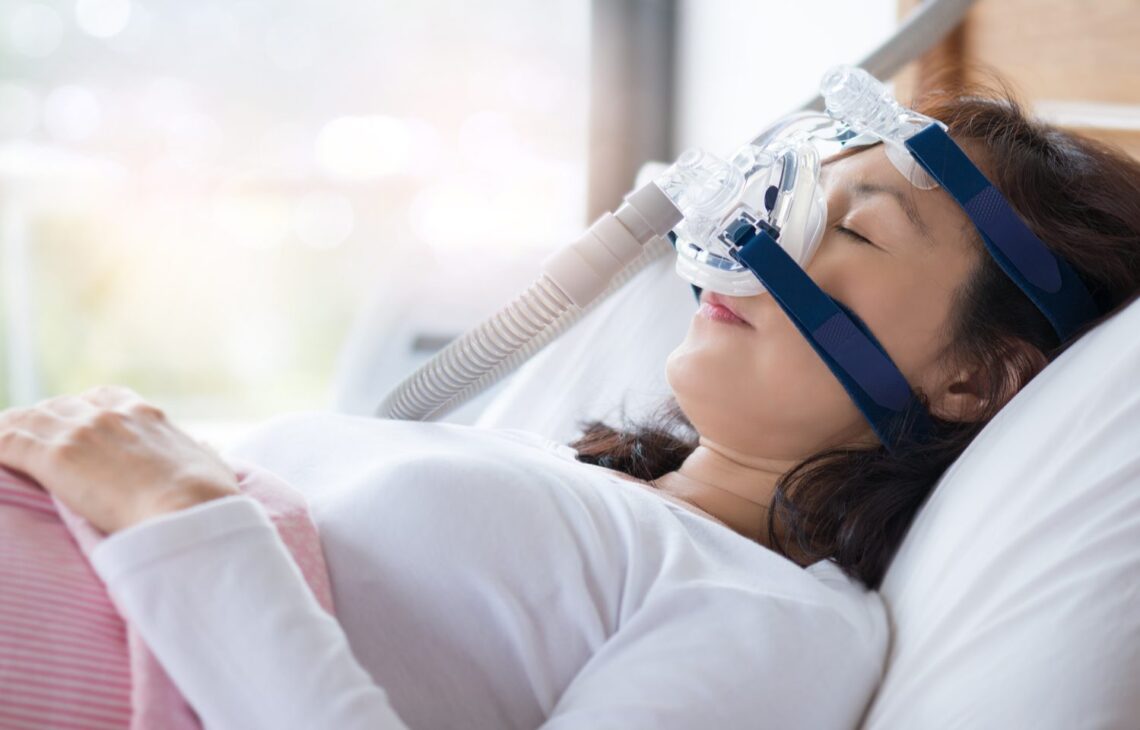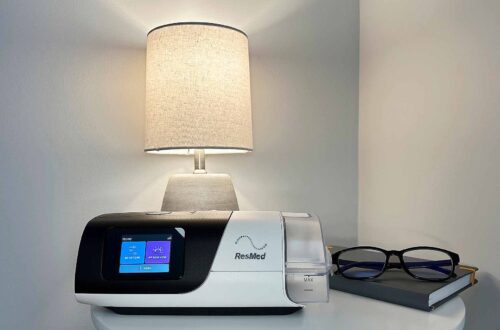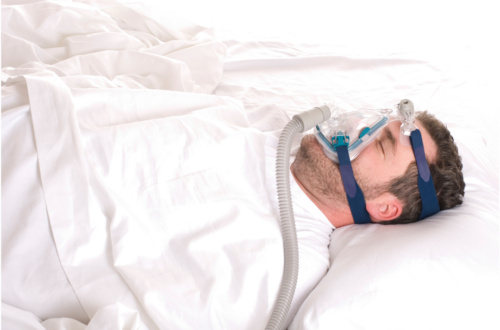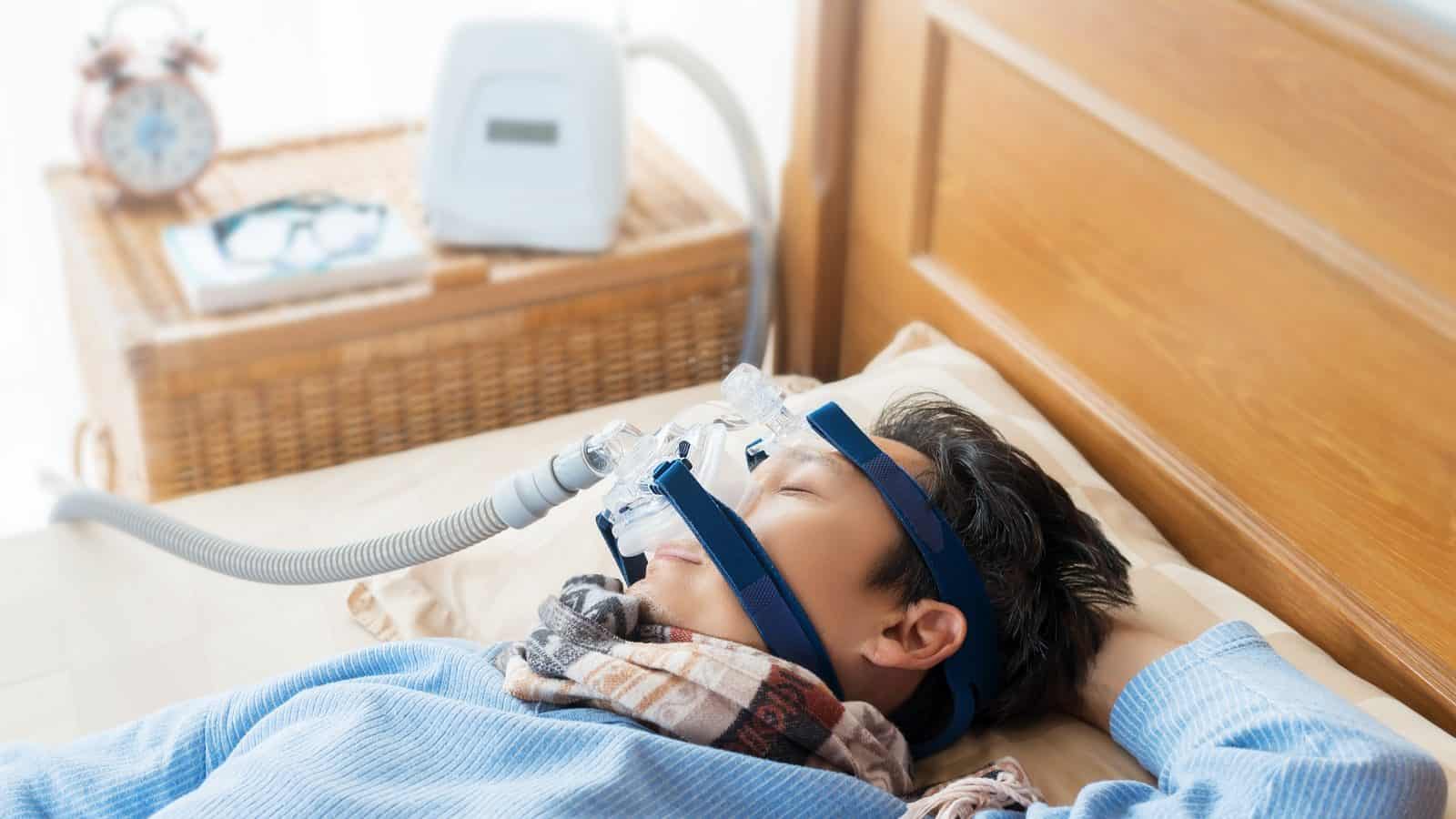-
Choosing a CPAP Mask for Your Sleeping Position: Tips and Considerations
Sleep apnea is a common sleep disorder that affects millions of people around the world. One of the most effective treatments for this condition is the use of a CPAP machine, which delivers a continuous stream of air pressure to keep the airways open during sleep. However, in order to experience the full benefits of CPAP therapy, it is important to choose a mask that not only fits well but also suits your sleeping position. In this article, we will explore the various factors to consider when selecting a CPAP mask based on your sleeping position, along with some useful tips and recommendations.
Understanding the Importance of a Properly Fitted CPAP Mask
A properly fitted CPAP mask or sleep study machine is crucial for effective treatment of sleep apnea. A well-fitting mask ensures a secure seal, preventing air leakage and maintaining optimal pressure levels. It also plays a significant role in improving comfort and compliance with therapy. When the mask fits correctly, it reduces the chances of skin irritation, mask shifting, or discomfort, allowing patients to enjoy a good night’s sleep.
Moreover, a properly fitted CPAP mask not only enhances the effectiveness of the treatment but also contributes to overall health and well-being. By ensuring that the air pressure delivered by the CPAP machine remains consistent and uninterrupted, the mask helps prevent serious complications associated with untreated sleep apnea, such as cardiovascular problems, daytime drowsiness, and decreased cognitive function.
The Role of CPAP Masks in Sleep Apnea Treatment
CPAP masks are an integral part of sleep apnea treatment. They work in conjunction with the CPAP machine to deliver pressurized air to the airways, preventing them from collapsing and providing uninterrupted airflow. By maintaining a constant flow of air, CPAP masks ensure that individuals receive adequate oxygen levels throughout the night, helping to alleviate symptoms such as snoring, daytime fatigue, and breathing interruptions.
Furthermore, CPAP masks come in various styles and sizes to cater to different patient preferences and facial shapes. From nasal masks to full-face masks, each type serves a unique purpose in addressing specific sleep apnea symptoms and comfort needs. Consulting with a healthcare provider or a sleep specialist can help individuals determine the most suitable CPAP mask for their condition, ensuring optimal treatment outcomes. Learn more about constant flow of air, visit at https://www.linkedin.com/pulse/balanced-ventilation-constant-flow-air-rate-systems-perestaj.
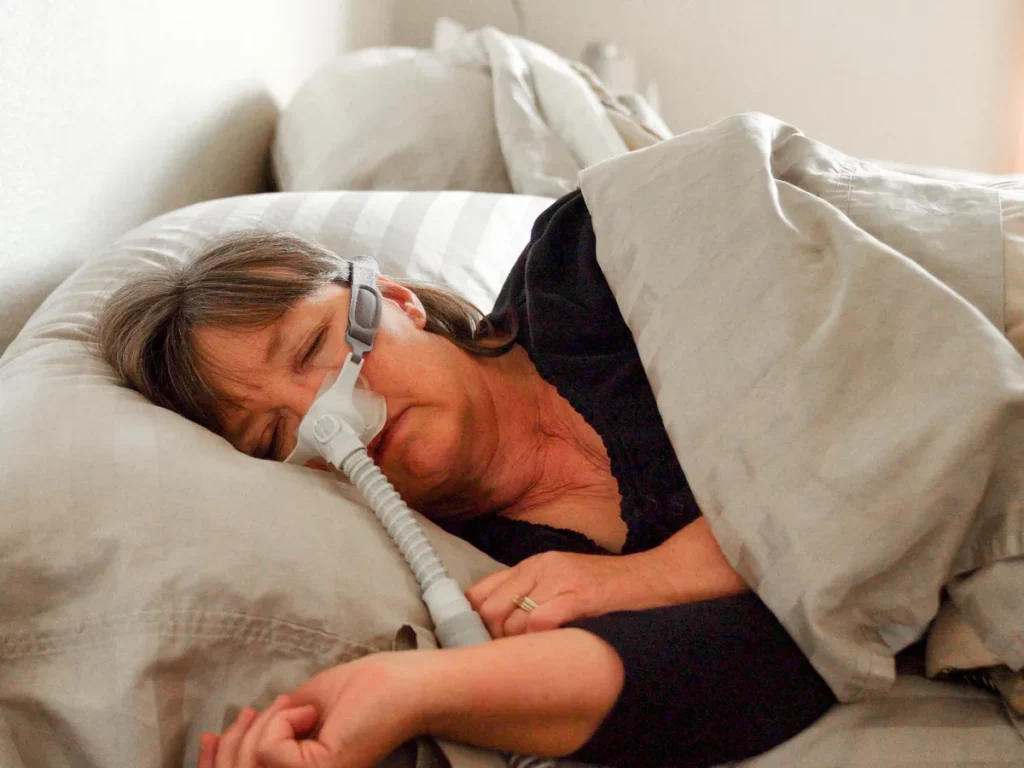
How Your Sleeping Position Affects CPAP Mask Performance
Your sleeping position can significantly impact the performance of your CPAP mask. Different sleeping positions require specific mask designs to provide optimal comfort and effectiveness. Understanding how your preferred sleeping position affects your mask performance can help you make an informed decision when selecting the right CPAP mask.
For instance, individuals who tend to sleep on their back may benefit from a CPAP mask with a lower profile to minimize interference with the pillow, while side sleepers may prefer a mask with a more secure headgear design to prevent shifting during the night. Considering factors such as head movement, facial structure, and comfort preferences can guide you in choosing a CPAP mask that enhances therapy adherence and overall sleep quality. Learn more about facial structure click here.
Different Types of CPAP Masks
CPAP masks come in various styles, each catering to different preferences and needs. Understanding the differences between the various types of masks can help you narrow down your options:
When selecting a CPAP mask, it’s essential to consider factors such as your breathing habits, comfort preferences, and any specific medical conditions you may have. Consulting with a healthcare provider or a CPAP specialist can also provide valuable guidance in choosing the most suitable mask for your individual needs. Learn more about Maximising Comfort: Strategies for Reducing CPAP Mask Discomfort visit at https://supplementsforskinhealth.com/maximising-comfort-strategies-for-reducing-cpap-mask-discomfort/(opens in a new tab)
Full Face Masks
Full face masks cover both the nose and mouth, ensuring that the pressurized air reaches the airways effectively. These masks are ideal for individuals who breathe through their mouth or require higher pressure settings. They provide a secure seal and accommodate movement during sleep, making them a popular choice among many CPAP users.
It’s important to note that full face masks may not be the best option for individuals who feel claustrophobic or prefer a more minimalistic design. However, for those who prioritize maximum airway coverage and stability during sleep, full face masks offer comprehensive respiratory support.
Nasal Masks
Nasal masks cover only the nose and are held in place with straps. They are less intrusive than full face masks and provide a clear field of vision. Nasal masks are suitable for individuals who breathe primarily through their nose and find full face masks uncomfortable.
One advantage of nasal masks is their versatility in accommodating different sleeping positions. Whether you are a side sleeper or prefer sleeping on your back, nasal masks can provide effective therapy without compromising comfort. Additionally, nasal masks are often recommended for individuals who experience nasal congestion or allergies, as they can help maintain airflow through the nostrils.
Nasal Pillow Masks
Nasal pillow masks are the smallest and lightest option available. They feature small inserts that rest just inside the nostrils, offering a clear field of vision and minimal contact with the face. Nasal pillow masks are ideal for individuals who prefer a minimalist design and find other mask types cumbersome.
Despite their compact size, nasal pillow masks provide effective therapy by delivering pressurized air directly into the nostrils. This design is particularly beneficial for individuals who experience skin irritation or pressure sores from traditional CPAP masks. Nasal pillow masks are also a popular choice for frequent travelers due to their compact design and ease of portability.
Factors to Consider When Choosing a CPAP Mask
Selecting the right CPAP mask for your sleeping position involves considering various factors. Here are some key considerations:
Comfort and Fit
Comfort is paramount when choosing a CPAP mask. Look for a mask that feels comfortable against your skin and does not cause any discomfort or pressure points. Ensure that it fits securely and does not shift during the night.
It’s important to note that different types of CPAP masks cater to various preferences. For instance, nasal masks cover only the nose and are ideal for individuals who breathe through their nose while sleeping. Full-face masks cover both the nose and mouth, making them suitable for mouth breathers. Nasal pillow masks are minimalistic and rest at the entrance of the nostrils, providing a less intrusive option for those who prefer a smaller mask.
Mask Size and Adjustment Features
The right mask size is essential for a proper fit. CPAP masks come in different sizes, so it is crucial to find one that suits your facial structure. Additionally, consider masks with adjustable features such as headgear straps and cushion tension to customize the fit according to your preferences.
Moreover, some CPAP masks offer innovative features like magnetic clips for quick assembly, swivel elbows for freedom of movement during sleep, and forehead pads to reduce pressure on the skin. These additional adjustment options can enhance the overall comfort and effectiveness of the mask.
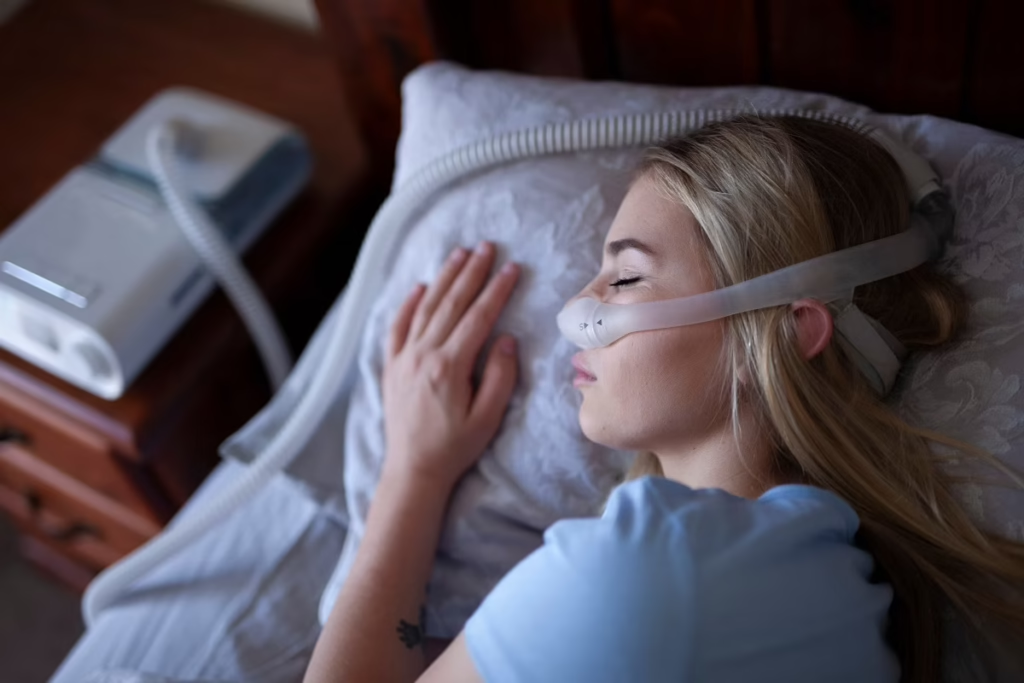
Material and Durability
Consider the material of the mask and its durability. Masks made from high-quality materials tend to be more comfortable and long-lasting. Look for masks that are easy to clean and maintain.
Silicone is a common material used in CPAP masks due to its softness and flexibility, providing a gentle touch on the face. Some masks incorporate memory foam cushions that contour to the face for a personalized fit. When assessing durability, factors such as the mask’s resistance to wear and tear, as well as its ability to maintain a proper seal over time, are crucial for long-term use.
Tips for Side Sleepers
Side sleepers face unique challenges when it comes to finding a suitable CPAP mask. Here are some tips to help side sleepers choose the right mask:
Side sleeping is a common position that can offer numerous health benefits, such as improved digestion and reduced snoring. However, for individuals using a CPAP machine, finding the right mask that accommodates this sleeping position is crucial for a comfortable night’s rest.
Best CPAP Masks for Side Sleepers
Side sleepers can benefit from masks that have a flexible design and allow for movement. Nasal masks and nasal pillow masks are generally well-suited for side sleepers, as they offer a minimal profile and provide freedom of movement.
Nasal masks are designed to fit securely over the nose, providing a seal that prevents air leakage during sleep. On the other hand, nasal pillow masks feature small cushions that seal around the nostrils, offering a lightweight and comfortable option for side sleepers who may feel claustrophobic with traditional masks.
Overcoming Common Challenges for Side Sleepers
Side sleepers may experience issues such as air leakage or pressure points due to the pillow pressing against the mask. To overcome these challenges, side sleepers can try using a pillow specifically designed for CPAP users or adjust their sleeping position slightly to minimize contact between the mask and the pillow.
Additionally, side sleepers can experiment with different mask styles and sizes to find the best fit for their unique needs. It is essential to work closely with a healthcare provider or CPAP supplier to ensure proper mask selection and fitting, ultimately leading to improved comfort and compliance with CPAP therapy.
Advice for Back Sleepers
Back sleepers have their own set of considerations when selecting a CPAP mask. It’s important for back sleepers to choose a mask that not only provides effective airflow but also ensures comfort throughout the night. Proper mask fit is crucial to prevent air leaks and ensure optimal therapy.
When it comes to CPAP masks for back sleepers, there are various options available in the market to cater to different preferences and needs. From full face masks to nasal masks, back sleepers have the flexibility to choose a mask that suits their sleeping style and comfort level.
Top CPAP Masks for Back Sleepers
Back sleepers can opt for full face masks or nasal masks based on personal preference and comfort. Full face masks ensure that air is delivered effectively even if the mouth falls open during sleep, while nasal masks provide a clear field of vision and less facial coverage. Some back sleepers may find nasal pillows to be a comfortable alternative, as they are lightweight and less intrusive.
Addressing Common Issues for Back Sleepers
Back sleepers may experience issues such as air leakage around the mouth or nasal bridge. To address these issues, back sleepers can try adjusting the mask straps or using mask liners or nasal strips to improve the seal. It’s essential for back sleepers to regularly check and maintain their CPAP equipment to ensure optimal performance and comfort.
Conclusion
Choosing the right CPAP mask for your sleeping position is essential for a comfortable and effective night’s sleep. Consider factors such as comfort, fit, mask type, and durability when making your selection. Consult with your sleep specialist or CPAP provider if you have any specific concerns or questions. By choosing a CPAP mask that suits your sleeping position, you can maximize the benefits of sleep apnea treatment and enjoy better sleep quality and overall well-being.

